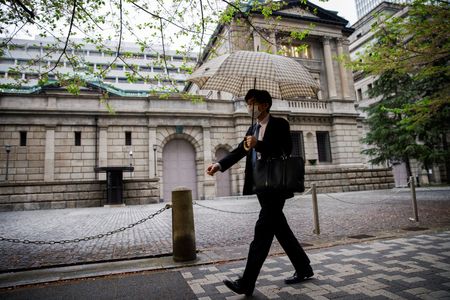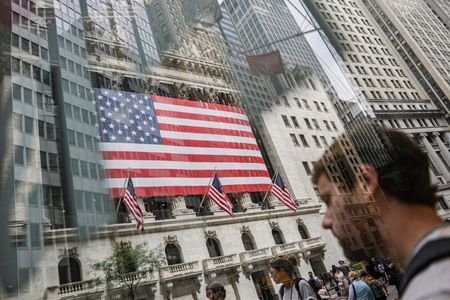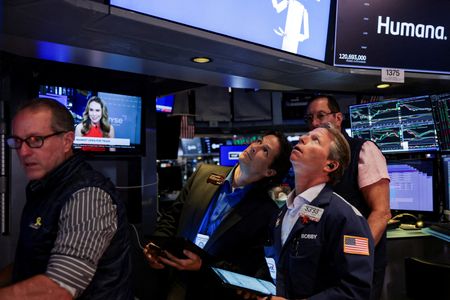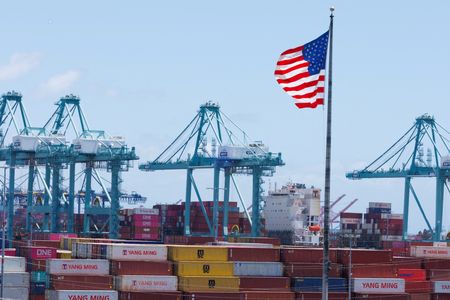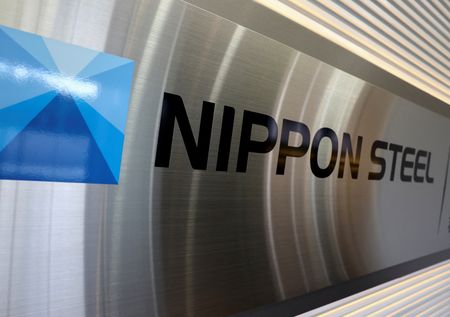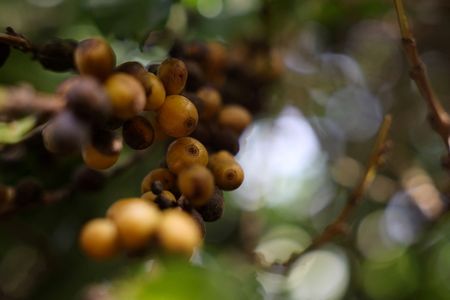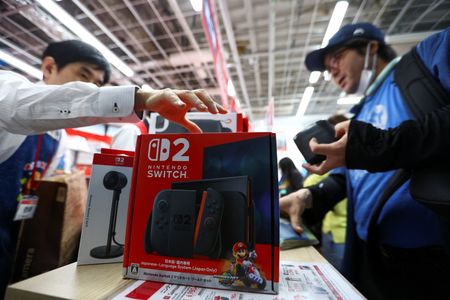By Leika Kihara
TOKYO (Reuters) -Profits of Japanese firms are likely to fall this year because of U.S. tariffs, leading them to downgrade capital expenditure plans, the central bank said on Friday, signalling caution over an expected hit to the export-dependent economy.
Automakers have swallowed the rising costs from the tariffs instead of passing them on to U.S. consumers, as seen in a fall of roughly 20% in export prices since April, the Bank of Japan said in a full version of its quarterly outlook report.
“This suggests Japanese automakers are averting price hikes that may lead to falling sales volume, at the cost of seeing profitability worsen,” the BOJ added.
The hit to Japanese exports from U.S. tariffs will become clearer once global trade volume, now inflated by companies front-loading shipments to avert higher U.S. levies, turns down, the bank said.
“Due to such direct and indirect effect of higher U.S. tariffs, Japanese companies face an increasing chance of profit declines in the current fiscal year,” it added.
There was a need to scrutinise how falling profits could affect firms’ willingness to keep hiking pay, it said.
The BOJ said U.S. tariffs have yet to cause any major change in Japanese companies’ plans for capital expenditure.
But past shocks of such scale have caused firms, many of which set spending at the start of Japan’s fiscal year in April, to downgrade plans toward the latter half of the year, it said.
“Uncertainty surrounding trade policy could affect capital expenditure plans with a lag,” it said.
In a summary of the outlook released on Thursday, the BOJ projected the economy to expand 0.6% in the current fiscal year, before growing 0.7% in 2026 and 1.0% in 2027.
U.S. President Donald Trump struck a trade deal with Japan last month that lowers tariffs on auto imports and spares Tokyo from punishing new levies on other goods.
Japan’s auto sector, which accounts for more than a quarter of its U.S. exports, would see tariffs cut to 15% from 25% now, at an unspecified date. Duties set to take effect on other Japanese goods from August 1 were also cut to 15% from 25%.
(Reporting by Leika Kihara; Editing by Clarence Fernandez)

